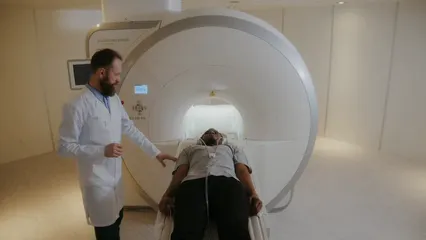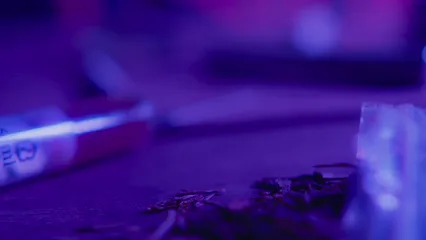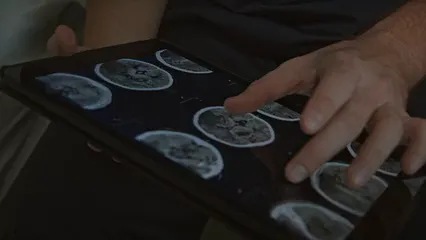
Why Do You Have to Fast Before MRI with Contrast?
Introduction
MRIs with contrast are vital for accurate diagnosis. They help visualize soft tissues and organs in detail. Fasting before the procedure is crucial for several reasons. This article explains why fasting is necessary and the guidelines you should follow.
Summary and Overview
Magnetic resonance imaging (MRI) plays a significant role in medical diagnostics. It provides detailed images of the body, helping doctors identify issues. Contrast agents, like gadolinium, enhance image clarity, making abnormalities easier to spot. If you’re curious about the science behind it, check out this Magnetic Resonance Imaging (MRI) Book that dives deeper into this fascinating field!
Fasting before MRIs is common and beneficial. It reduces the risk of complications, such as nausea. This article focuses on the reasons behind fasting and the potential risks of not adhering to these guidelines.

Understanding MRI and Contrast
What is an MRI?
MRI, or magnetic resonance imaging, is a non-invasive imaging technique. It uses powerful magnets and radio waves to create detailed images of the body’s internal structures. MRIs are commonly used to diagnose various conditions, including brain disorders, joint injuries, and tumors.
The technology behind MRIs aligns protons in the body, producing signals that generate images. It’s fascinating to note that millions of MRIs are performed annually, showcasing their importance in healthcare. If you’re curious about MRI technology, there’s plenty to learn!
What is Contrast and Why is it Used?
Contrast agents are substances, usually containing gadolinium, injected into the body during an MRI. They enhance the visibility of certain tissues and blood vessels, providing clearer images. This is especially beneficial for diagnosing conditions like tumors or vascular diseases.
Contrast improves imaging quality significantly. Studies show that images obtained with contrast can reveal issues that might go unnoticed otherwise. If you’re scheduled for an MRI, consider discussing the use of contrast with your doctor for a better understanding of its benefits.

Importance of Fasting Before MRI with Contrast
Why Fasting is Recommended
Fasting before an MRI with contrast is crucial for several reasons. For one, it helps minimize the risk of nausea and vomiting during the procedure. Imagine lying in a confined space while feeling queasy—definitely not a fun experience! Studies reveal that up to 4.6% of patients may experience nausea when they eat before the scan.
Another important reason is that food and drink can interfere with the clarity of the images. When you eat, your stomach processes food, which can create gas and alter the positioning of organs. This can lead to unclear images, making it difficult for doctors to identify issues accurately.
Additionally, certain contrast agents can cause gastrointestinal discomfort. To ensure patient safety and obtain the best possible images, following fasting guidelines is essential. By adhering to these instructions, you increase the chances of a smooth and effective MRI experience. So, next time you’re scheduled for an MRI, remember the importance of fasting for optimal results.

Understanding the reasons for fasting before an MRI with contrast is crucial for a successful procedure. why do you have to fast before mri with contrast
Specific Fasting Guidelines
Fasting guidelines can vary based on the type of MRI you are undergoing. Generally, for abdominal MRIs, you should refrain from eating solid food for about four to six hours prior to the scan. If you’re having a cardiac MRI, you might only need to fast for two hours.
For those with specific conditions, like diabetes, consult your healthcare provider for tailored guidelines. It’s also essential to avoid heavy, greasy meals before your appointment, as these can lead to complications.
Most medical institutions will provide you with specific fasting instructions, so always confirm them ahead of time. Remember, proper preparation can significantly impact the quality of your imaging results.

Risks of Not Fasting
Not fasting before an MRI with contrast can lead to several risks and complications. For instance, patients who eat before the procedure may experience nausea or vomiting. This can compromise the scan, making it difficult to capture clear images.
In some cases, failure to follow fasting guidelines has resulted in repeat scans, causing unnecessary delays in diagnosis and treatment. Statistics show that around 2.5% of patients experience vomiting when they eat before their MRI, a number that could be significantly reduced by adhering to fasting rules.
Moreover, eating might lead to gas formation in the gastrointestinal tract, which can obscure critical areas during imaging. Prioritizing your health by following these guidelines is essential for a successful MRI experience. Always remember that taking these precautions can save you time, discomfort, and ensure accurate results.
Preparing for Your MRI
What to Expect on the Day of the MRI
On the day of your MRI, the process begins with check-in. Arriving early is essential, as it allows time for necessary paperwork and any additional tests, like blood tests, if required. Generally, you’ll need to fill out a medical history form and undergo a safety screening.
After check-in, you’ll change into a hospital gown. It’s important to remove all metal items, including jewelry and watches, as they can interfere with the MRI machine. Expect to spend around 30 minutes to an hour for the entire check-in and preparation process. To make your hospital stay more comfortable, consider wearing comfortable loungewear for post-MRI relaxation. You’ll thank yourself later!
Given that MRIs can take between 15 to 90 minutes, depending on the area being scanned, planning ahead is vital. Make sure to follow any specific instructions provided by your healthcare team for a smooth experience. Always remember to plan accordingly for your MRI visit to ensure everything goes as planned.

Communicating with Your Healthcare Provider
Effective communication with your healthcare provider is crucial before your MRI. Discuss any concerns you have, especially regarding fasting and the procedure itself. It’s essential to understand why fasting is necessary and how it impacts your scan results.
Consider asking questions like, “How long should I fast?” or “What if I forget to fast?” These inquiries will help clarify any uncertainties. Research shows that approximately 30% of patients feel unprepared for their procedures, which can lead to anxiety. To help manage that anxiety, consider using a fidget spinner to keep your hands busy!
Advocating for your health by asking questions can significantly enhance your comfort and readiness. Don’t hesitate to voice any concerns you may have about your MRI. Open dialogue with your medical team ensures you’re fully informed and at ease during the process.

Conclusion
Fasting before an MRI with contrast is vital for your safety and the accuracy of results. By refraining from food and drink, you minimize the risk of nausea and other complications. This preparation ensures that images captured are clear and reliable, allowing your healthcare provider to make informed decisions about your health. Always remember to follow your healthcare provider’s instructions closely. Your health is too important to take chances, so prioritize these guidelines for the best MRI experience.
How long do I need to fast before my MRI with contrast?
Typically, you should fast for about four to eight hours before your MRI with contrast. This duration may vary based on specific guidelines given by your healthcare provider, so always check for personalized recommendations.
Can I drink water before my MRI?
In most cases, you can drink water before your MRI. However, it’s best to avoid anything other than water to ensure accurate imaging results. Always confirm with your healthcare provider for specific instructions.
What happens if I forget to fast before my MRI?
If you forget to fast before your MRI, it could lead to nausea or unclear images. In some cases, the MRI may need to be rescheduled. If this happens, inform your healthcare team immediately for guidance on next steps.
Why is fasting necessary for certain types of MRIs but not others?
Fasting is often necessary for abdominal and pelvic MRIs because food can interfere with clarity. For other types, like brain MRIs, fasting may not be as critical. Guidelines vary based on the specific scan’s requirements, so always consult your provider.
Are there exceptions to fasting before an MRI?
You might wonder if there are exceptions to fasting before an MRI. Yes, certain medical conditions can change fasting requirements. For example, patients with diabetes may need tailored fasting instructions. They should discuss any necessary adjustments with their healthcare provider. Additionally, some specific MRI types allow for lighter fasting or even no fasting at all. Your doctor will provide guidance based on your individual health needs. Always clarify any doubts before your appointment to ensure the best results from your MRI.
How should I prepare for my MRI appointment?
Preparing for your MRI appointment is straightforward. First, you’ll want to follow any fasting instructions given by your doctor. Typically, fasting for four to eight hours is standard for MRIs with contrast. Next, arrive early to allow time for check-in and paperwork. Bring a list of your medications and any allergies you may have. Also, remember to wear comfortable clothing without metal fastenings. This helps avoid complications during the scan. Lastly, if you have any concerns or questions, don’t hesitate to ask your healthcare team. They’re there to help you feel at ease.
Will fasting affect my health negatively?
Many people worry about how fasting might affect health. Generally, fasting for a short period is safe for most individuals. In fact, it helps ensure a clear and accurate MRI image. However, some may experience mild discomfort or hunger. It’s essential to stay well-hydrated unless instructed otherwise. If you have specific health conditions, like diabetes, consult your doctor for personalized advice. They can help you understand how to manage fasting safely. Overall, the benefits of fasting for your MRI often outweigh any temporary discomfort.
If you’re feeling anxious about your MRI, consider using anxiety relief essential oil to help calm your nerves before the procedure. A little aromatherapy can go a long way!
Please let us know what you think about our content by leaving a comment down below!
Thank you for reading till here 🙂
All images from Pexels




